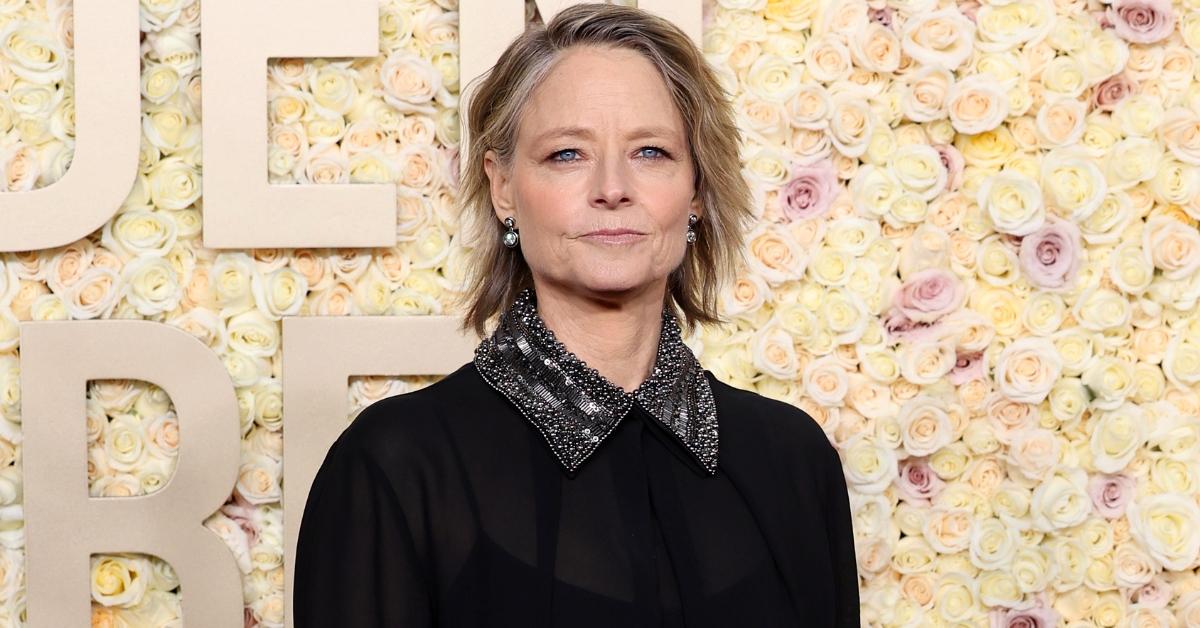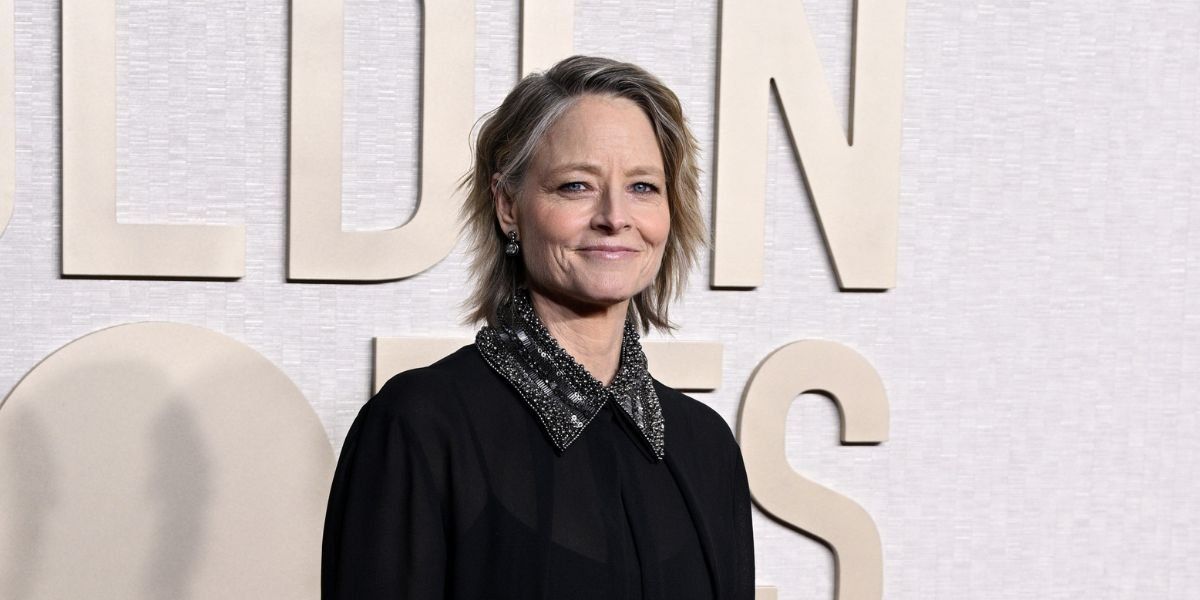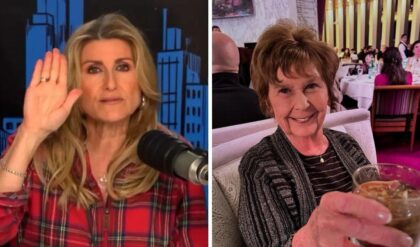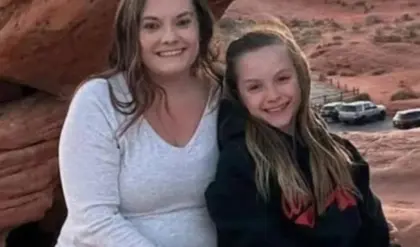At some point, she sidled behind the camera and has settled comfortably there, directing episodes of hit shows like Black Mirror and Orange Is the New Black. Then, Hotel Artemis came along.
Of the film, Foster admits she “found the script mysteriously” — it hadn’t even been released yet. “I tend to be so picky, and it was so good that I wanted to jump aboard immediately. So I was the first person on,” the Oscar-winning actor revealed to SheKnows. This is no small compliment coming from Foster, who had for all intents and purposes retired from movie roles.
“I’ve been directing a lot, and I didn’t really want to come back to acting unless it was something that I absolutely loved,” she said. “I was looking for something that felt more like a transformation. For me, that would be more exciting, to do something that was more of a challenge than what people expect of me and just to have that kind of physical transformation to create a full character.”

And transformation she got.
In the noir-ish crime thriller, Foster plays a character known to most as “The Nurse” — an aging woman, presumably around 70, whose past heartbreak is embedded in the wrinkles that splay across her face. She is tired. Life has not always been kind to her. She lost her medical license long ago, but in Los Angeles 2028, she no longer needs to practice traditional medicine. Instead, she runs a hospital for rich criminals out of Hotel Artemis.
When we first see this future version of Foster, the city of Los Angeles is in the middle of a riot over the privatization of water. That noise and chaos serves as a backdrop for the film, but there is very real social commentary beneath the surface about commodifying water and other human rights. That’s the thing about science fiction, says Foster — it’s sort of prophetic by nature.
“It’s science fiction, and whether it’s Black Mirror or a movie like Hotel Artemis, we’re looking to who we are now and where we are headed. That’s what you do in sci-fi. You look at where we are as a transition,” Foster shared, touching on other overarching themes throughout the film: health care, the disparity between classes, the overprescription of pharmaceuticals and advanced technology.
For Foster, this is perhaps what drew her to the film the most. Calling it “very, very relevant,” the iconic actor-slash-director said, “I’m very interested and have been very interested in this idea of science fiction that is more about our psychology and how technology and our advances are a reflection of our psychology.”
At the mention of psychology, we can’t help but home in on an interesting aspect of Foster’s.

Throughout our conversation, she often deferred to others: director Drew Pearce, whom she credits with imbuing this high-octane thriller with the emotional center of her character; the cast as a whole, whom she applauds for the “great chemistry between them”; and costar Sterling K. Brown, who has frequently gushed about Foster in press appearances leading up to the film’s release. The feeling is certainly mutual. “Sterling, he’s really special. He’s a wonderful actor. He’s got a lot to say, and I really wanted to support and be there for this to really be his leading-man role. This is him as leading man,” Foster said.But when we ask if she gave Brown (or would give any other rising stars) advice, Foster is quick to downplay her influence. “Oh, gosh, I don’t feel like anybody needs any advice from me,” she says, and it’s obvious she believes this to be true. What also seems obvious to us is that Foster still lives with the lingering specter of imposter syndrome, a fact she’s touched on during interviews in the past.
“Yeah, I guess I do,” she responds frankly when we ask her as much. “Plus, acting’s such a personal thing, and everybody does it differently. I guess I always felt the imposter part was also because I didn’t go to Juilliard. I didn’t go to film school. I didn’t go to theater school, and I had to come up with my own way in.”
So, as inexplicable as it sounds to the rest of us, most days, Foster genuinely feels at a loss when it comes to what she has to offer. What she does know is what she can do — and does do — for her costars within a scene.
“That’s really where it all happens with each other, and you help each other. You help each other get there; you help each other come up with things. It’s kind of like playing tennis,” she explained, adding, “I think sometimes fear is contagious, and the best thing that you can do for another actor is to just commit. To commit fearlessly.”
In her personal life, Foster reveals she’s come to much the same conclusion. Outside of directing (which she believes she’s “the most engineered for”), what brings Foster the most joy at this phase in her life is watching her kids get older. “I have a son who’s 20 and one who’s 16-1/2, and, you know, the college thing is amazing. I just get so much joy watching them have their firsts, whether it’s watching my son in a play or my other son do his robotics things or watching them interact with their friends or watching them perform,” she said.
However, Foster admits that if she had it to do all over again, she might just mother more fearlessly too.
“It’s funny but because of the way I grew up, I was really intent on the kids going to a regular school and riding a bike on the sidewalk… all the things I didn’t get to do, right? The normal life,” she shared. “I just wanted them to be normal Americans in some idea that I had from watching television about what that would be, and I wanted to check all the boxes for them about everything they would do.”
“But I realized, OK, that was great and I’m really glad they had that life. But if I had to do it all over again, if I had another opportunity, I think I’d be like, ‘Let’s just go to Rwanda for a year. Let’s just have it all be an adventure,” Foster said. “Because that time in your life, you only get that one time — to have the newness of just greeting the world that way.”



